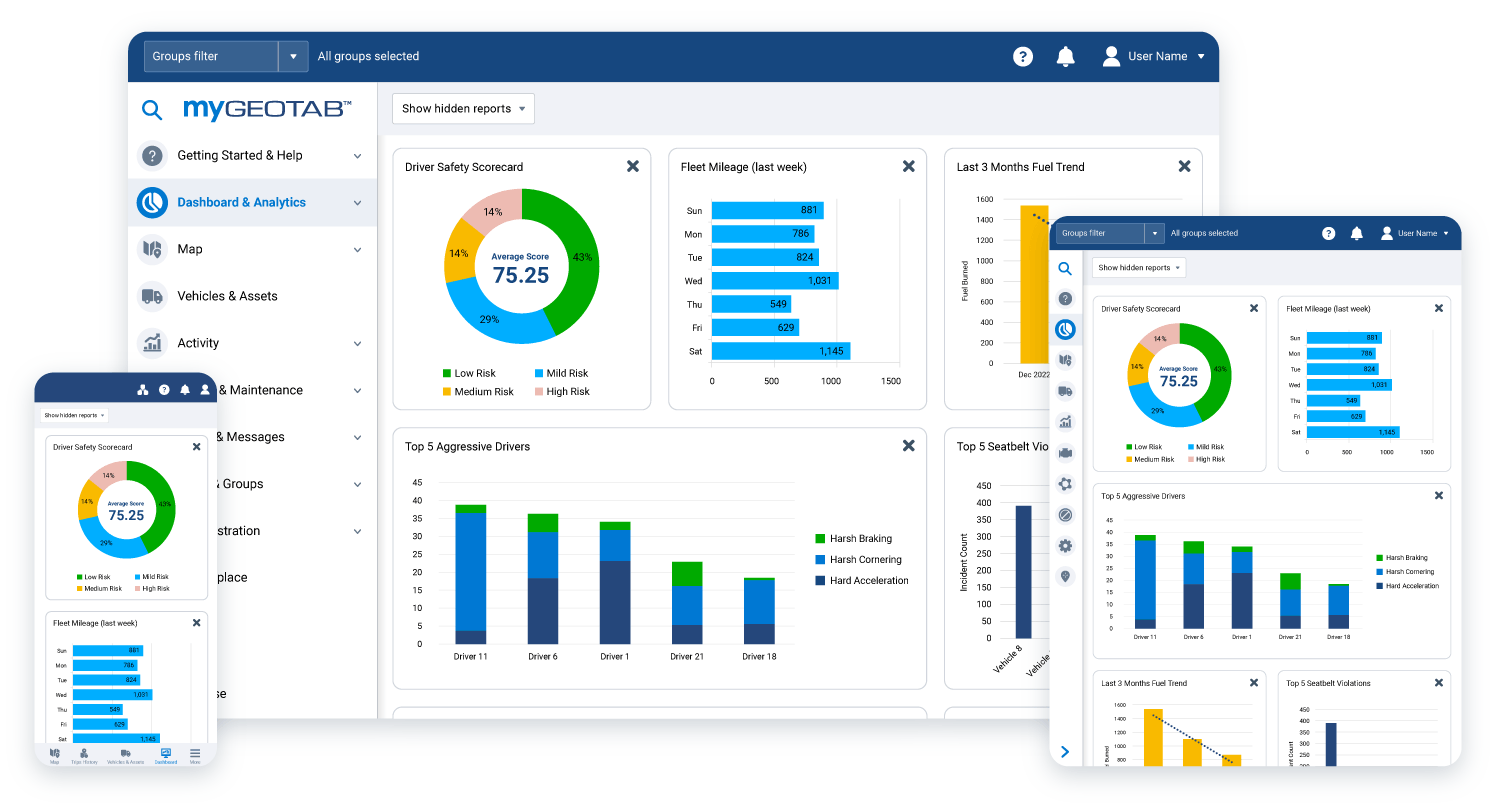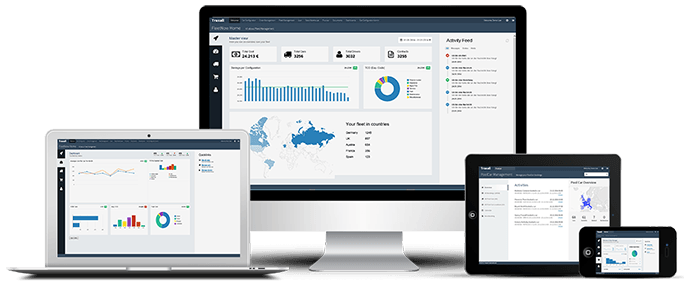Optimize Your Fleet's Efficiency Via Innovative Administration Software
In the vibrant landscape of fleet monitoring, the duty of ingenious management software program can not be overemphasized. Via a strategic combination of administration software program, companies can unlock a realm of possibilities that go much beyond traditional fleet administration methods.
Benefits of Management Software Application
Fleet administration software provides a variety of advantages that simplify procedures and enhance efficiency for services of all sizes. One essential advantage is improved efficiency with maximized routes and routines. By utilizing GPS tracking and real-time data, managers can effectively appoint jobs, monitor development, and make fast adjustments as required. This results in lowered downtime, boosted shipment times, and inevitably, increased client fulfillment.
Furthermore, fleet administration software assists companies reduce prices dramatically. By examining gas use, automobile maintenance needs, and chauffeur behavior, business can recognize areas for renovation and implement approaches to minimize expenditures. This data-driven technique results in much better decision-making, inevitably saving money over time.

Real-Time Vehicle Monitoring
With the boosting demand for boosted performance and cost-saving steps in fleet procedures, real-time lorry monitoring has emerged as a pivotal tool for organizations intending to maximize their logistical processes successfully. Real-time lorry monitoring uses GPS modern technology to offer real-time location data of each lorry in a fleet.
Furthermore, the information gathered through real-time tracking can be assessed to determine patterns and fads, enabling constant optimization of fleet operations. On the whole, integrating real-time vehicle tracking right into fleet management practices can result in substantial operational renovations and expense savings for services.
Path Optimization Functions
Efficient course optimization plays an essential duty in streamlining fleet operations and making the most of productivity. Path optimization includes incorporated into fleet administration software program utilize advanced formulas to establish the most effective paths for vehicles to adhere to. By taking into consideration factors such as web traffic conditions, road closures, and optimum shipment home windows, these tools aid fleet managers minimize fuel prices, decrease lorry deterioration, and boost overall functional efficiency.
With real-time data updates and anticipating analytics, route optimization features enable fleets to adjust to altering situations when driving swiftly. This dexterity leads to improved client complete satisfaction via on-time distributions and enhanced service levels. Furthermore, by decreasing unneeded gas mileage and still time, fleet supervisors can reduce their carbon impact and add to environmental sustainability initiatives.
Price Efficiency Solutions
Taking full advantage of functional cost performance in fleet administration surpasses path optimization and encompasses a series of strategic solutions to enhance funds and drive sustainable growth. One key cost effectiveness option is the application of anticipating maintenance software program. By utilizing information analytics and maker knowing algorithms, fleet supervisors can proactively set up upkeep based upon actual car problems, decreasing downtime and avoiding expensive unexpected failures.
In addition, adopting gas administration systems can significantly affect price efficiency. These systems keep track of gas consumption in real-time, recognize ineffectiveness, and suggest ways to improve gas economy. By maximizing fuel use, fleets can minimize overall functional costs and minimize their ecological impact.
An additional necessary cost-saving action is leveraging telematics innovation. Telematics solutions give important insights right into driver actions, car efficiency, and route efficiency. By assessing this information, fleet managers can make informed choices to streamline operations, improve efficiency, and inevitably decrease costs.
Improving Fleet Security
Enhancing the safety and security criteria within fleet operations is vital for guaranteeing chauffeur wellness and decreasing the threat of mishaps. These systems provide real-time tracking of chauffeur actions, such as speeding, severe braking, and irregular driving, enabling fleet supervisors to intervene immediately and offer needed training to motorists.
Normal upkeep and evaluations are likewise important aspects in guaranteeing fleet safety. Executing a proactive maintenance timetable can assist recognize and deal with potential problems prior to they rise fleet management tools into safety hazards. Using anticipating upkeep software application can assist in predicting upkeep needs based on car data, minimizing the likelihood of unanticipated failures that might compromise safety and security.
Moreover, purchasing motorist training programs focused on protective driving methods and safety and security procedures can infuse a safety-conscious society within the fleet. By focusing on precaution and leveraging technology-driven options, fleet supervisors can effectively boost safety criteria and shield both chauffeurs and assets.
Verdict
